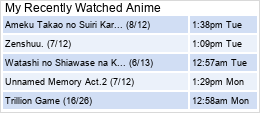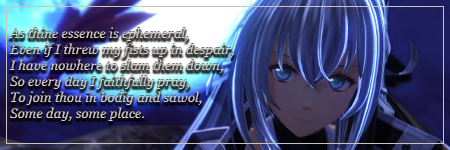New
How do you prefer names that contain Japanese wordplay to be localized?
Jun 27, 2024 11:13 AM
#1
| While not a Japanese anime series, there was recently some interesting debate going on in the gaming sphere over localization differences in an upcoming rerelease of a popular DS game and it got me thinking about how names are (or aren't) localized in localizations of Japanese properties into new languages. For context, Nintendo and Capcom recently announced that the Ace Attorney Investigations Collection will be launching on Nintendo Switch and would include Ace Attorney Investigations 2: Prosecutor's Gambit which was previously only officially released in Japan for the DS as Gyakuten Kenji 2 (逆転検事2). While this excited a lot of fans, there was controversy over this official English localization specifically, as the names used differed from the fan translation patch for the Nintendo DS version of the game that fans had gotten used to for over 10 years. The changes that got fans upset were as follows: Tateyuki Shigaraki (信楽 盾之), previously known as Raymond Shields in the fan translation is now called Eddie Fender. The fan translation name took a more literal approach by focusing on the 盾 kanji which means Shield but by doing this sacrificing the shared similarity between his name and Gregory Edgeworth's (御剣 信) as they both share the 信 kanji. Capcom's takes a more silly loose approach by making his name a pun that sounds like "a defender" in reference to his job as a defense attorney, while adding back some name similarity between Eddie and Edgeworth. Yumihiko Ichiyanagi (一柳 弓彦), previously known as Sebsatian Debeste in the fan translation is now called Eustace Winner. Both the fan translation and official one try and go for a regal sounding high-class name which reflects the Japanese version, while the last names tend to get the msot controversy. Debeste and Winner are both trying to reflect the Japanese surname of Ichiyanagi, but many fans don't like how Winner sounds too weird as a last name. The full name in the official is trying to do what the Japanese did and have another layer as it is also a play on the phrase 一矢無き弓を引く (ichiya naki yumi wo hiku) which means "to pull a bow without an arrow" showing how he sometimes makes poor judgements. The official English probably trying to make the alternate pun of "Useless Whiner" to show something similar. This controversy has gotten me thinking about the nature of changing names in localizations and how wordplay generally is one of the hardest things to translate between languages. Most Japanese anime and other media when translated into English tend to go the route of keeping the original names regardless of if the audience would understand the wordplay or not, leading to things being lost in translation. Most of the time this is fine as it isn't the most common for it to be relevant to the character, but sometimes it can definitely lead to things becoming lost such as Krillin/Kuririn's name being a play on the Japanese word for a chesnut. Some will go the route of translating the wordplay into other languages or changing it completely to fit, although outside of Pokémon and Yu-Gi-Oh, although this style has seemingly fell out of favor for the most part due to it leading to less authentic settings. There's definitely a balancing act and sacrifices that need to be made in cases like this so the question is, what do you think is the best method? Keeping everything as is, changing while trying to be close to the original pun, changing while creating a new pun? Or do you think this is a case-by-case basis when wordplay is involved. |
This post is brought to you by your local transfem gamer goblin. Will not tolerate bigotry and will fight against "anti-woke" sentiment to make the anime community a safer place. 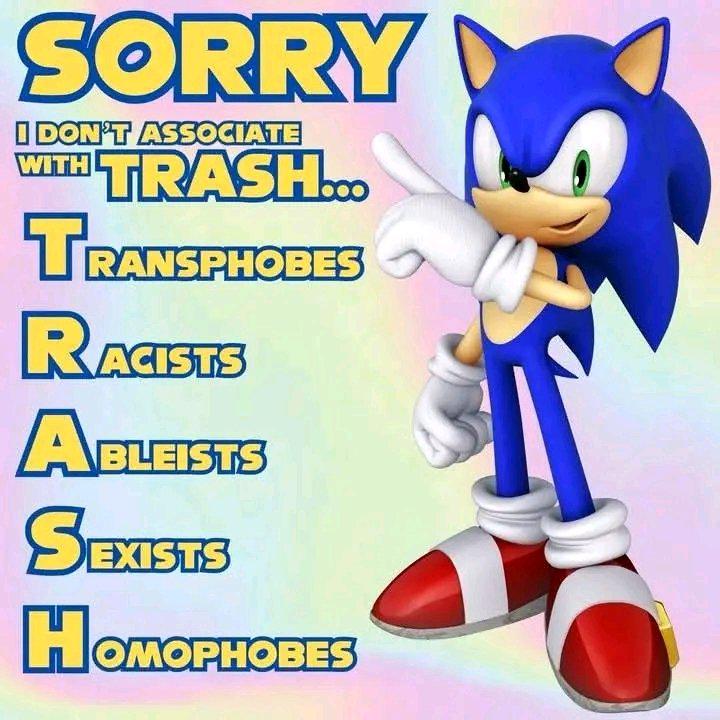 |
Jun 27, 2024 11:15 AM
#2
| I guess it depends on the case, but I usually prefer the Japanese names. |
 |
Jun 27, 2024 11:20 AM
#3
| Depending on the situation and context each of the 3 could work but for most cases i would suggest going with linguistic and cultural equivalence as opposed to a literal translation. My golden rules for localization : "if it doesn't make sense in the target language, change it but keep the core to make it make sense in the target language but don't invent or add anything that wasn't there already unless it's absolutely necessary" |
Jun 27, 2024 11:41 AM
#4
Reply to tchitchouan
Depending on the situation and context each of the 3 could work but for most cases i would suggest going with linguistic and cultural equivalence as opposed to a literal translation.
My golden rules for localization : "if it doesn't make sense in the target language, change it but keep the core to make it make sense in the target language but don't invent or add anything that wasn't there already unless it's absolutely necessary"
My golden rules for localization : "if it doesn't make sense in the target language, change it but keep the core to make it make sense in the target language but don't invent or add anything that wasn't there already unless it's absolutely necessary"
| @tchitchouan The only way to make great anime is to transform all cigarettes into lollipops, all guns into weird spring hammer abominations, and make everyone have very natural names like John Doe |
Jun 27, 2024 11:42 AM
#5
| If you want to watch another cultures work but won't put in the slightest effort to learn about it, I think you should simply accept that some things will go over your head and should go over your head. In no other comparison does this work at all. You don't alter historical references to things because some people don't know history, you don't change obscure game references because some people never played that game, etc. It makes zero logical sense and the aversion to learning something new when it comes to anime specifically is just weird. It is like people think learning a pun or something every now and then in another language is as difficult as learning the language itself, but its just as simple as learning any other random sort of joke or reference to something. |
Jun 27, 2024 11:43 AM
#6
| Keep the original names and explain them once each with additional subtitles. |
No, this isn't my signature. |
Jun 27, 2024 11:44 AM
#7
Reply to BirdyTheMighty
@tchitchouan The only way to make great anime is to transform all cigarettes into lollipops, all guns into weird spring hammer abominations, and make everyone have very natural names like John Doe
@BirdyTheMighty Yes that's clearly the peak of greatest anime.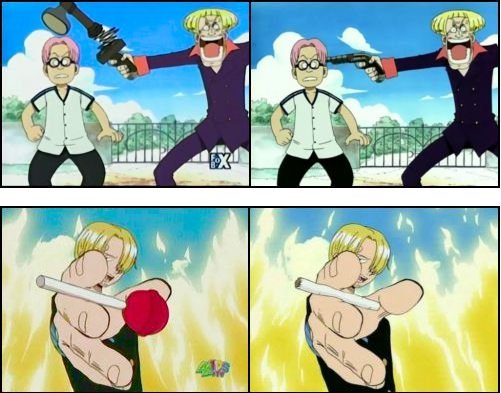 |
Jun 27, 2024 11:50 AM
#8
| I think it depends on various factors. Idk much about Ace Attorney, but if the wordplay is a crucial element of these names, it makes sense to localize the names so that the wordplay can make sense to western audiences, but there are also situations where the wordplay is still there, but isn't too important and very little gets lost in translation by keeping the names the same, and if anything, you could accidentally lose something in translation by translating the names. For example: in No Game No Life, in addition to the Kanji for Sora and Shiro's names combining to form "kuuhaku" (blank), the name they use to refer to themselves as a single unit, Sora's name means both "sky" and "empty", which is important for Sora and Shiro's first interaction, as her picking up on the double meaning of his name is what made him realize just how special she was. This is explicitly spelled out in the show, so you can understand the significance of it without needing to understand Japanese, but it wouldn't work if Sora's name was translated into English as "Sky", "Empty", or some compromise between the two, like "Void" or something. Ultimately, it all depends on what works better for each individual series. The point of localization is to preserve the original experience and translate it over into another language as well as you can, and sometimes that requires taking liberties, and changing some names could be a part of that. |
Jun 27, 2024 11:59 AM
#9
| Tari Tari has a character named "Wien." I didn't realize this was a joke when I watched the anime. Only Austrians, Germans, and Japanese would understand. I think it is most important to change names of yokai if their Japanese names double as descriptions. Otherwise, you get nonsense like "Neko Musume must confront Nezumi Otoko under orders from Emma Dai-O." Yes, the official manga translation uses those names. If the name is not a description, it is best to leave it alone rather than invent a translation. |
| その目だれの目? |
Jun 27, 2024 11:51 PM
#10
| Just keep em the way the japanese intended them to be. Subtitles and translator's notes are enough. Right, subtitles. One thing that bugs me is how some of them change titles or honorifics like "onee-chan" to simply their real name. |
Jun 29, 2024 12:21 PM
#11
Reply to TRC_Randy
Just keep em the way the japanese intended them to be. Subtitles and translator's notes are enough.
Right, subtitles. One thing that bugs me is how some of them change titles or honorifics like "onee-chan" to simply their real name.
Right, subtitles. One thing that bugs me is how some of them change titles or honorifics like "onee-chan" to simply their real name.
TRC_Randy said: Just keep em the way the japanese intended them to be. Subtitles and translator's notes are enough. Right, subtitles. One thing that bugs me is how some of them change titles or honorifics like "onee-chan" to simply their real name. Pretty much the same and agreed as long it's easy to understand and remember as it should. |
Jun 29, 2024 12:28 PM
#12
| TL notes educate people about a foreign culture. Name changing is cultural imperialism as well as the assumption that your audience is illiterate. Just because people don't know what onigiri is, doesn't mean it should be translated as "doughnut". To anyone wondering why I'm mentioning this ancient mistranslation: because despite its notoriety localizers continue doing it even today. 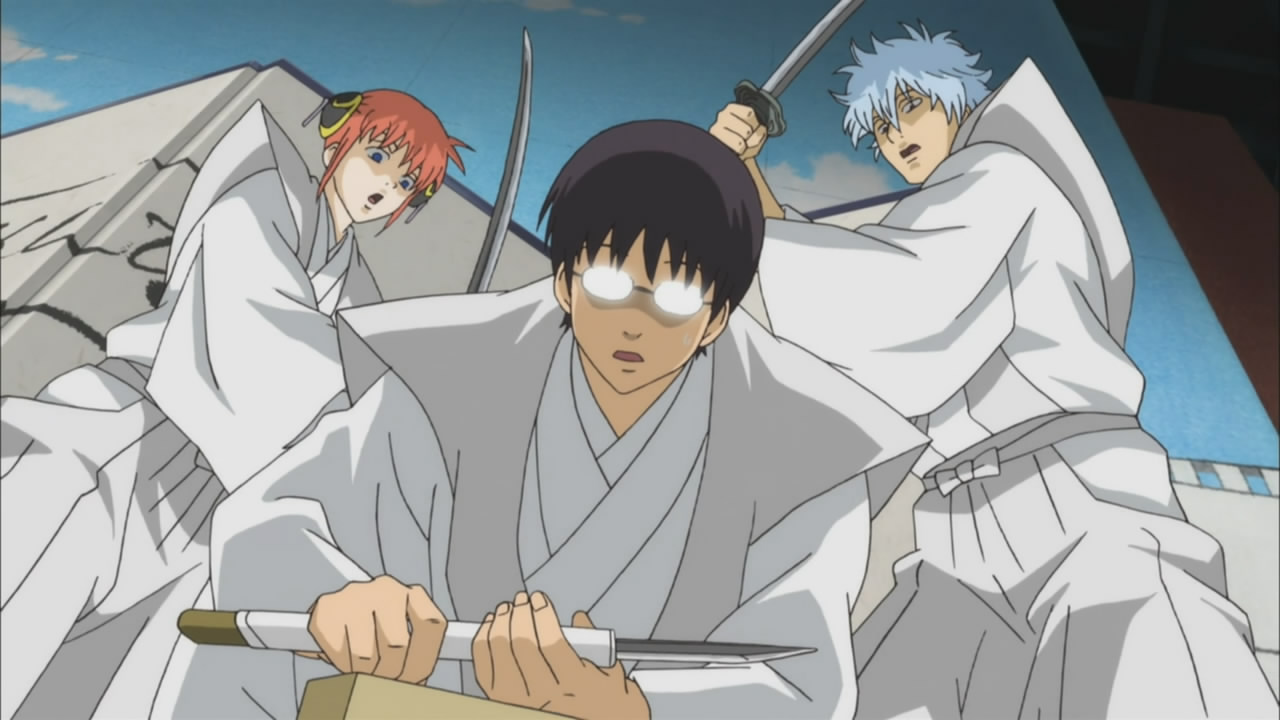 |
Jun 29, 2024 12:57 PM
#13
| There are some names that don't work in a certain language, when it happens translators should think on another name that feets, even if the meaning is different |
Jun 29, 2024 1:12 PM
#14
Reply to Shizuna
TL notes educate people about a foreign culture.
Name changing is cultural imperialism as well as the assumption that your audience is illiterate.
Just because people don't know what onigiri is, doesn't mean it should be translated as "doughnut". To anyone wondering why I'm mentioning this ancient mistranslation: because despite its notoriety localizers continue doing it even today.

Name changing is cultural imperialism as well as the assumption that your audience is illiterate.
Just because people don't know what onigiri is, doesn't mean it should be translated as "doughnut". To anyone wondering why I'm mentioning this ancient mistranslation: because despite its notoriety localizers continue doing it even today.

| @Shizuna TL Notes are considered highly unprofessional if you put them in the middle of a work. The way they are usually professionally handled is to put them in the back of manga volumes or in director's commentaries on anime dubs (very rare thing to see these days) as to not take away from the moment. Also think about cases where a direct translation of a character's name wouldn't work. It would be extremely distracting if you were say playing Ace Attorney and whenever Larry Butz (Masashi Yahari in Japanese) came on screen and someone said the catchphrase that they say whenever he gets into trouble and you had a giant note that slowed down the game further afterwords that said "Masashi is a pun on the phrase 'with certainty' and Yahari is a pun on the phrase 'of course', so the quote here 'when something happens, of course it's Yahari' is wordplay on his own name that is lost in English" instead of what they did chaning his name to a pun in English and changing the catchphrase accordingly to "when something smells, it's usually the Butz". It flows more naturally and isn't distracting. It isn't that stupid culture war "CULTURAL IMPERIALISM" argument when in order for something to make sense in english you got to make changes. I believe that there are cases where you can't just leave things exactly the same since you would not be getting the same experience without modifying things. There's definitely arguments to be made over it but stop saying that it is "THE WEST IMPOSING ON JAPAN" when in reality there's a lot of thought that has to go into these things sometimes. It's not the same as "MAN THESE DONUTS ARE GREAT, JELLY FILLED ARE MY FAVORITE, NOTHING BEATS A JELLY FILLED DONUT", its not even remotely close |
This post is brought to you by your local transfem gamer goblin. Will not tolerate bigotry and will fight against "anti-woke" sentiment to make the anime community a safer place.  |
Jun 29, 2024 2:00 PM
#15
| Yes. Keep the Japanese wording and names. If it's really important, put a translator's note in to explain the wordplay. |
Jun 29, 2024 2:33 PM
#16
Jun 29, 2024 2:35 PM
#17
tchitchouan said: My golden rules for localization : "if it doesn't make sense in the target language, change it but keep the core to make it make sense in the target language but don't invent or add anything that wasn't there already unless it's absolutely necessary" Gotta agree with this. LSSJ_Gaming said: TL Notes are considered highly unprofessional if you put them in the middle of a work. Also this I think a question that needs to be asked is how important the wordplay is to begin with. If we're talking about something where that kind of stuff is abundant (like in a comedy series), it should be changed. If we're talking about a minor case that's largely irrelevant, I say keep it as is. |
Jun 30, 2024 10:11 AM
#18
| I don’t think changing the character’s names is a bad thing. It can work if the name makes sense. |
Jun 30, 2024 11:55 AM
#19
Reply to LSSJ_Chloe
@Shizuna
TL Notes are considered highly unprofessional if you put them in the middle of a work. The way they are usually professionally handled is to put them in the back of manga volumes or in director's commentaries on anime dubs (very rare thing to see these days) as to not take away from the moment. Also think about cases where a direct translation of a character's name wouldn't work. It would be extremely distracting if you were say playing Ace Attorney and whenever Larry Butz (Masashi Yahari in Japanese) came on screen and someone said the catchphrase that they say whenever he gets into trouble and you had a giant note that slowed down the game further afterwords that said "Masashi is a pun on the phrase 'with certainty' and Yahari is a pun on the phrase 'of course', so the quote here 'when something happens, of course it's Yahari' is wordplay on his own name that is lost in English" instead of what they did chaning his name to a pun in English and changing the catchphrase accordingly to "when something smells, it's usually the Butz". It flows more naturally and isn't distracting. It isn't that stupid culture war "CULTURAL IMPERIALISM" argument when in order for something to make sense in english you got to make changes. I believe that there are cases where you can't just leave things exactly the same since you would not be getting the same experience without modifying things. There's definitely arguments to be made over it but stop saying that it is "THE WEST IMPOSING ON JAPAN" when in reality there's a lot of thought that has to go into these things sometimes. It's not the same as "MAN THESE DONUTS ARE GREAT, JELLY FILLED ARE MY FAVORITE, NOTHING BEATS A JELLY FILLED DONUT", its not even remotely close
TL Notes are considered highly unprofessional if you put them in the middle of a work. The way they are usually professionally handled is to put them in the back of manga volumes or in director's commentaries on anime dubs (very rare thing to see these days) as to not take away from the moment. Also think about cases where a direct translation of a character's name wouldn't work. It would be extremely distracting if you were say playing Ace Attorney and whenever Larry Butz (Masashi Yahari in Japanese) came on screen and someone said the catchphrase that they say whenever he gets into trouble and you had a giant note that slowed down the game further afterwords that said "Masashi is a pun on the phrase 'with certainty' and Yahari is a pun on the phrase 'of course', so the quote here 'when something happens, of course it's Yahari' is wordplay on his own name that is lost in English" instead of what they did chaning his name to a pun in English and changing the catchphrase accordingly to "when something smells, it's usually the Butz". It flows more naturally and isn't distracting. It isn't that stupid culture war "CULTURAL IMPERIALISM" argument when in order for something to make sense in english you got to make changes. I believe that there are cases where you can't just leave things exactly the same since you would not be getting the same experience without modifying things. There's definitely arguments to be made over it but stop saying that it is "THE WEST IMPOSING ON JAPAN" when in reality there's a lot of thought that has to go into these things sometimes. It's not the same as "MAN THESE DONUTS ARE GREAT, JELLY FILLED ARE MY FAVORITE, NOTHING BEATS A JELLY FILLED DONUT", its not even remotely close
LSSJ_Gaming said: TL Notes are considered highly unprofessional if you put them in the middle of a work I greatly enjoyed the TL Notes on fansubbed anime though its no real loss to me that they're not used in official subs. Is there a reason they're considered unprofessional? |
Jun 30, 2024 12:00 PM
#20
| I guess the kinmoza Sentai bluray sitting on my bookshelf have “unprofessional” subs then. |
| You can buy lossless digital music from your favorite Japanese artists on https://ototoy.jp/. The songs are all DRM-free and you can re-download your purchased albums as you wish. Show your support to your favorite artist if you can! ps. if you are looking for Japanese albums, you have to search it in Japanese (not romaji). Just copy and paste the name. For those who want to learn Japanese through anime Resources for learning the language |
Jun 30, 2024 12:20 PM
#21
Reply to TheDoodle
LSSJ_Gaming said:
TL Notes are considered highly unprofessional if you put them in the middle of a work
TL Notes are considered highly unprofessional if you put them in the middle of a work
I greatly enjoyed the TL Notes on fansubbed anime though its no real loss to me that they're not used in official subs. Is there a reason they're considered unprofessional?
| @TheDoodle I'd say the need to pause every few minutes to read the notes is reason enough to shy away from them. It's made worse by translators who use too many. Urusei Yatsura has helpful notes, but half the notes in Goldfish Warning don't matter at all. |
| その目だれの目? |
Jun 30, 2024 1:29 PM
#22
Reply to Lucifrost
@TheDoodle
I'd say the need to pause every few minutes to read the notes is reason enough to shy away from them. It's made worse by translators who use too many. Urusei Yatsura has helpful notes, but half the notes in Goldfish Warning don't matter at all.
I'd say the need to pause every few minutes to read the notes is reason enough to shy away from them. It's made worse by translators who use too many. Urusei Yatsura has helpful notes, but half the notes in Goldfish Warning don't matter at all.
| @Lucifrost Yeah that makes sense that most people wouldn't want to do that while I have no qualms about it, oh well. |
Jun 30, 2024 1:30 PM
#23
Reply to TheDoodle
LSSJ_Gaming said:
TL Notes are considered highly unprofessional if you put them in the middle of a work
TL Notes are considered highly unprofessional if you put them in the middle of a work
I greatly enjoyed the TL Notes on fansubbed anime though its no real loss to me that they're not used in official subs. Is there a reason they're considered unprofessional?
| @TheDoodle Professional standards for subtitles have a character and line limit to avoid filling the screen with too much text. Generally, no more than 2 lines of text should be up at the same time as otherwise there is too much visual information on the screen at once between the footage and the subtitles for the viewer to deal with. Adding a translator's note on top of the screen would cause this issue by now having possible 2-4 additional lines of text on screen in addition to the translated dialogue itself. This can be visually distracting as not only is more of the image obscured, both lines of text are fighting for the viewer's attention and the viewer would not realistically have time to read both before they disappear. This is less of an isuse in manga where you can put small notes in the gutter space between panels or in the back of the book, but in a film or TV show there is no such luxury as time and screen space are much more of an issue, and with video games the time aspect also comes into effect as it would break up the intended space or increase file sizes. There are some creative workarounds if you need to teach the audience something that I have seen, such as audio commentary tracks on some dubs, or the Persona 4 manual giving a glossary of some relevant Japanese traditions and cultural terms to help the player if they are confused by certain things, but solutions like this are not always an option. |
This post is brought to you by your local transfem gamer goblin. Will not tolerate bigotry and will fight against "anti-woke" sentiment to make the anime community a safer place.  |
Jun 30, 2024 1:43 PM
#24
Reply to LSSJ_Chloe
@TheDoodle
Professional standards for subtitles have a character and line limit to avoid filling the screen with too much text. Generally, no more than 2 lines of text should be up at the same time as otherwise there is too much visual information on the screen at once between the footage and the subtitles for the viewer to deal with. Adding a translator's note on top of the screen would cause this issue by now having possible 2-4 additional lines of text on screen in addition to the translated dialogue itself. This can be visually distracting as not only is more of the image obscured, both lines of text are fighting for the viewer's attention and the viewer would not realistically have time to read both before they disappear. This is less of an isuse in manga where you can put small notes in the gutter space between panels or in the back of the book, but in a film or TV show there is no such luxury as time and screen space are much more of an issue, and with video games the time aspect also comes into effect as it would break up the intended space or increase file sizes. There are some creative workarounds if you need to teach the audience something that I have seen, such as audio commentary tracks on some dubs, or the Persona 4 manual giving a glossary of some relevant Japanese traditions and cultural terms to help the player if they are confused by certain things, but solutions like this are not always an option.
Professional standards for subtitles have a character and line limit to avoid filling the screen with too much text. Generally, no more than 2 lines of text should be up at the same time as otherwise there is too much visual information on the screen at once between the footage and the subtitles for the viewer to deal with. Adding a translator's note on top of the screen would cause this issue by now having possible 2-4 additional lines of text on screen in addition to the translated dialogue itself. This can be visually distracting as not only is more of the image obscured, both lines of text are fighting for the viewer's attention and the viewer would not realistically have time to read both before they disappear. This is less of an isuse in manga where you can put small notes in the gutter space between panels or in the back of the book, but in a film or TV show there is no such luxury as time and screen space are much more of an issue, and with video games the time aspect also comes into effect as it would break up the intended space or increase file sizes. There are some creative workarounds if you need to teach the audience something that I have seen, such as audio commentary tracks on some dubs, or the Persona 4 manual giving a glossary of some relevant Japanese traditions and cultural terms to help the player if they are confused by certain things, but solutions like this are not always an option.
| @LSSJ_Gaming What Lucifrost said already made me understand though I appreciate the more in-depth explanation. As I said having to pause to read wouldn't bother me but it makes sense its not for everyone or advised for TV. |
Jun 30, 2024 1:58 PM
#25
| Keep all character names the way they were intended in the original! So what if some jokes fly over my head or don't land as well as for the Japanese?! Id rather miss some puns than having some lame trash dub names!!! |
Jun 30, 2024 2:48 PM
#26
| keep it, voice said A while text written B is far more distracting. in name case notes just need to be played for short time and so rare, maybe just when their first introduction, unlike altering name that will keep repeated every time. example : hitori bocchi full of playable name and it's just explained at the beginning (muse TL version, idk about cr). never seen any anime that need notes every minutes either. tsukimichi s2 last episode also not alter the word of 'togi' and it's easy to understand where the joke is without pausing. |
 - -  |
Jun 30, 2024 2:56 PM
#27
| I think in many cases I prefer translator notes in subs, though this isnt always practical if the lines said and translation note are too long to read requiring more pausing than reasonable. Though technically translator notes might work even better in dubs because many people can listen and read at once. But usually in case of subs it is better to keep names same as you hear them. Dubs have a bit more flexibility with names. It also depends on setting. A Japanese setting it should keep it's Japaneseness while a foreign or fantasy setting might not need that. I also much prefer if subs use the name and name order you hear otherwise you have to tune out the audio or it is just weirdly distracting. |
| ⠀⠀⠀⠀ ⠀⠀⠀⠀⠀⠀ ⠀⠀⠀⠀ ⠀⠀⠀⠀ ⠀⠀⠀⠀⠀⠀ ⠀⠀⠀⠀⠀⠀ ⣸⠋⠀⠀⠀⡄⠀⠀⡔⠀⢀⠀⢸⠀⠀⠀⡘⡰⠁⠘⡀⠀⠀⢠⠀⠀⠀⢸⠀⠀⢸⠀⠀⠀⠀⠀⠀⠀⠀⠀ ⠀⠀⠀⠀ ⠀⠀⠀⠀⠀⠀ ⠀⠀⠀⠀⠀⠀ ⠀ ⠀⠀⠀⠀ ⠀⠀⠀⠀⠀⠀ ⠀⠀⠀⠁⠀⣀⠀⠀⡇⠀⡜⠈⠁⠀⢸⡈⢇⠀⠀⢣⠑⠢⢄⣇⠀⠀⠸⠀⠀⠀⢸⠀⠀⢸⠀⠀⠀⠀⠀⠀⠀⠀⠀ ⠀⠀⠀⠀ ⠀⠀⠀⠀⠀⠀ ⠀⠀⠀⠀⠀⠀⠀⠀⠀⠀ ⠀⠀⠀⠀ ⠀⠀⠀⠀⠀⠀ ⠀⢰⡟⡀⠀⡇⡜⠀⠀⠀⠀⠘⡇⠈⢆⢰⠁⠀⠀⠀⠘⣆⠀⠀⠀⠀⠀⠸⠀⠀⡄⠀⠀⠀⠀⠀⠀⠀⠀⠀ ⠀⠀⠀⠀ ⠀⠀⠀⠀⠀⠀ ⠀⠀⠀⠀ ⠀⠀⠀⠀⠀⠀ ⠀⠤⢄⠀⠀⠀⠀⠀⠀⠀⠀⡼⠀⣧⠀⢿⢠⣤⣤⣬⣥⠀⠁⠀⠀⠛⢀⡒⠀⠀⠀⠘⡆⡆⠀⠀⠀⡇⠀⠀⠇⠀⠀⠀⠀⠀⠀⠀⠀⠀ ⠀⠀⠀⠀ ⠀⠀⠀⠀⠀⠀ ⠀⠀ ⠀⠀⠀⠀ ⠀⠀⠀⠀⠀⠀ ⠀⢵⡀⠀⠀⠀⠀⠀⡰⠀⢠⠃⠱⣼⡀⣀⡀⠀⠀⠀⠀⠀⠀⠀⠈⠛⠳⠶⠶⠆⡸⢀⡀⣀⢰⠀⠀⢸ ⠀⠀⠀⠀⠀⠀⠀⠀⠀⠀ ⠀⠀⠀⠀ ⠀⠀⠀⠀ ⠀⠀⠀⠀⠀⠀ ⠀⠀⠀⠀⠀⠀ ⣀⣀⣀⠄⠀⠉⠁⠀⠀⢠⠃⢀⠎⠀⠀⣼⠋⠉⠀⠀⠀⠀⠀⠀⠀⠀⠀⠀⠴⠢⢄⡔⣕⡍⠣⣱⢸⠀⠀⢷⠀⠀⠀⠀⠀⠀⠀⠀⠀⠀ ⠀⠀⠀⠀ ⠀⠀⠀⠀⠀⠀ ⠀⠀⠀⠀⠀ ⠀⠀⠀⠀ ⠀⠀⠀⠀⠀⠀ ⠀⠀⠀⡰⠃⢀⠎⠀⠀⡜⡨⢢⡀⠀⠀⠀⠐⣄⠀⠀⣠⠀⠀⠀⠐⢛⠽⠗⠁⠀⠁⠊⠀⡜⠸⠀⠀⠀⠀⠀⠀⠀⠀⠀⠀ ⠀⠀⠀⠀ ⠀⠀⠀⠀⠀⠀ ⠀ ⠀⠀⠀⠀ ⠀⠀⠀⠀⠀⠀ ⠀⠀⠀⠀⠀ ⢀⠔⣁⡴⠃⠀⡠⡪⠊⣠⣾⣟⣷⡦⠤⣀⡈⠁⠉⢀⣀⡠⢔⠊⠁⠀⠀⠀⠀⢀⡤⡗⢀⠇⠀⠀⠀⠀⠀⠀⠀⠀⠀⠀ ⠀ ⠀⠀⠀⠀ ⠀⠀⠀⠀ ⠀⠀⠀⠀⠀⠀ ⠀⠀⠀⠀⠀⠀ ⠀⠀⢀⣠⠴⢑⡨⠊⡀⠤⠚⢉⣴⣾⣿⡿⣾⣿⡇⠀⠹⣻⠛⠉⠉⢀⠠⠺⠀⠀⡀⢄⣴⣾⣧⣞⠀⡜⠀⠀⠀⠀⠀⠀⠀⠀⠀⠀⠀ ⠀⠀⠀⠀ ⠀⠀⠀⠀⠀⠀ ⠀⠀⠀⠀ ⠀⠀⠀⠀⠀⠀ ⠐⠒⣉⠠⠄⡂⠅⠊⠁⠀⠀⣴⣿⣿⣿⣿⣻⣿⣿⡇⠀⠀⢠⣷⣮⡍⡠⠔⢉⡇⡠⠋⠁⠀⣿⣿⣿⣿⣄⠀⠀⠀⠀ |
Jun 30, 2024 3:40 PM
#28
| Proper nouns should always be left untranslated. Someone's name is someone's name. I don't meet a Japanese person, find out their name, and then translate it and call them by that instead, I just call them by their name. Whether I know what it means or not. Luc36 said: keep it, voice said A while text written B is far more distracting. This drives me crazy too, and it's not even limited to translations. I was watching a show recently, where we were in a flashback to when two characters met, and they were clearly calling each other by their family names, but the subtitles still had the first names used, (because in the west, people don't typically call each other by their family name, even when they've just met) even though you can clearly hear the characters say otherwise. It's even more baffling when it's an English word being translated to another English word, lol. I was playing a game, where they would say the word "genocide" IN ENGLISH, but the subtitles would translate it to Massacre instead, what? |
Jackson1333Jun 30, 2024 3:44 PM
More topics from this board
» An anime that would be a masterpiece for you if not for one thing. ( 1 2 3 )RobertBobert - Sep 17 |
101 |
by RobertBobert
»»
40 seconds ago |
|
» Your favorite families in anime?Shizuna - 2 hours ago |
9 |
by SoumyaUkil73
»»
7 minutes ago |
|
» Which anime which insists upon itself the most?joyandhappiness - Sep 23 |
38 |
by Maou_heika
»»
18 minutes ago |
|
» Headcanon: Every anime character is an actor. So they don't actually die. This also explains how OVAs / Specials exist.IpreferEcchi - 10 hours ago |
23 |
by LittleStar
»»
21 minutes ago |
|
» Failed Ecchi - things that tried to be sexy but were just unappealingTheBlockernator - Sep 24 |
16 |
by ryan77999
»»
27 minutes ago |


